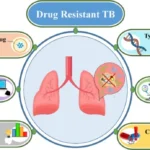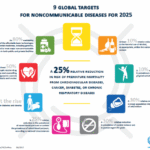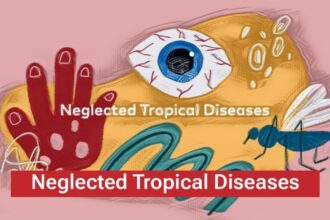While the humanitarian imperative for addressing Neglected Tropical Diseases (NTDs) is undeniable, there is also a compelling economic case for investing in their control and elimination. The profound economic consequences of NTDs, affecting individuals, households, and national economies, highlight the fact that investing in NTD programs is not merely an act of charity but a strategic investment in human capital and sustainable development.
The economic burden of NTDs manifests in various ways. For individuals and households, NTDs can lead to chronic disability, disfigurement, and reduced productivity, resulting in loss of income and increased healthcare expenditures. Children affected by NTDs may experience impaired physical and cognitive development, leading to lower educational attainment and reduced future earning potential. The stigma and social exclusion associated with certain NTDs, such as lymphatic filariasis and leprosy, can further limit economic opportunities and social participation.
At the national level, the cumulative impact of NTDs on the workforce can significantly hinder economic growth. Reduced productivity due to illness and disability translates into lower output and decreased national income. Healthcare systems in endemic countries often bear a significant cost in managing the complications of NTDs, diverting resources from other essential health services. Furthermore, the presence of NTDs can deter tourism and foreign investment, further impeding economic development.
Several studies have demonstrated the high return on investment in NTD control and elimination programs. Interventions such as mass drug administration for soil-transmitted helminths and lymphatic filariasis are highly cost-effective, yielding significant health gains for a relatively low cost. By preventing disability and improving health, these programs enable individuals to participate more fully in economic activities, leading to increased productivity and income generation.
Investing in NTD control also contributes to poverty reduction. By alleviating the burden of illness and disability, NTD programs can help to break the cycle of poverty that often perpetuates these diseases. Healthier individuals are better able to work, earn a living, and contribute to their household and community economies. Children who are free from NTDs are more likely to attend school, learn effectively, and reach their full potential.
Furthermore, controlling and eliminating NTDs can contribute to achieving broader development goals, such as improved educational outcomes, gender equality, and reduced health inequalities. Healthier populations are more resilient and better equipped to adapt to economic shocks and environmental challenges.
The economic benefits of investing in NTD control and elimination far outweigh the costs. While the initial investment may seem significant, the long-term returns in terms of improved health, increased productivity, and reduced poverty are substantial. By prioritizing NTDs in development agendas and allocating adequate resources for their control and elimination, governments and international donors can unlock the economic potential of affected communities and contribute to sustainable and inclusive growth.
The economic imperative for investing in NTDs is clear. By recognizing the profound economic consequences of these neglected diseases and prioritizing their control and elimination, the global community can not only alleviate immense human suffering but also foster economic prosperity and contribute to a more equitable and sustainable world.















